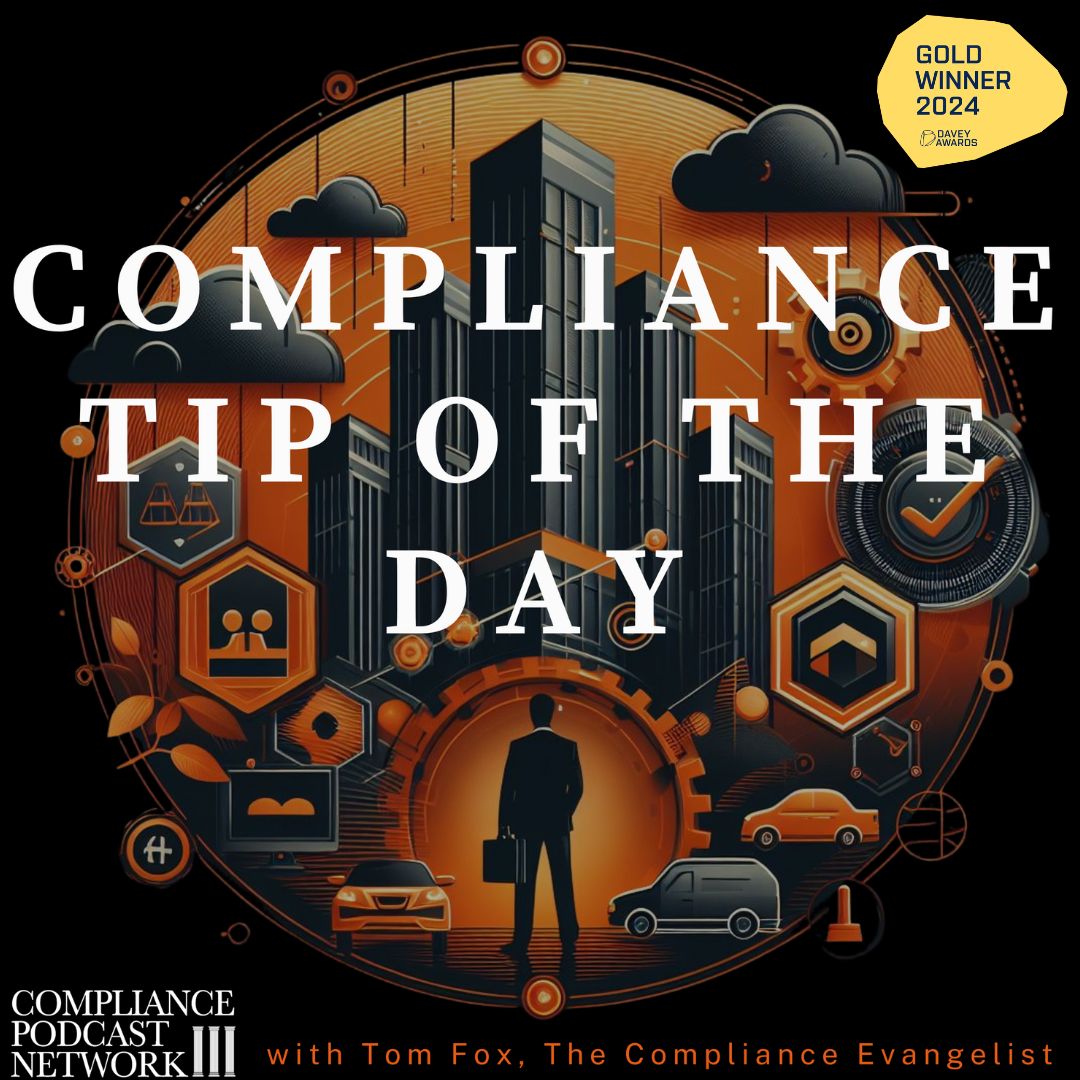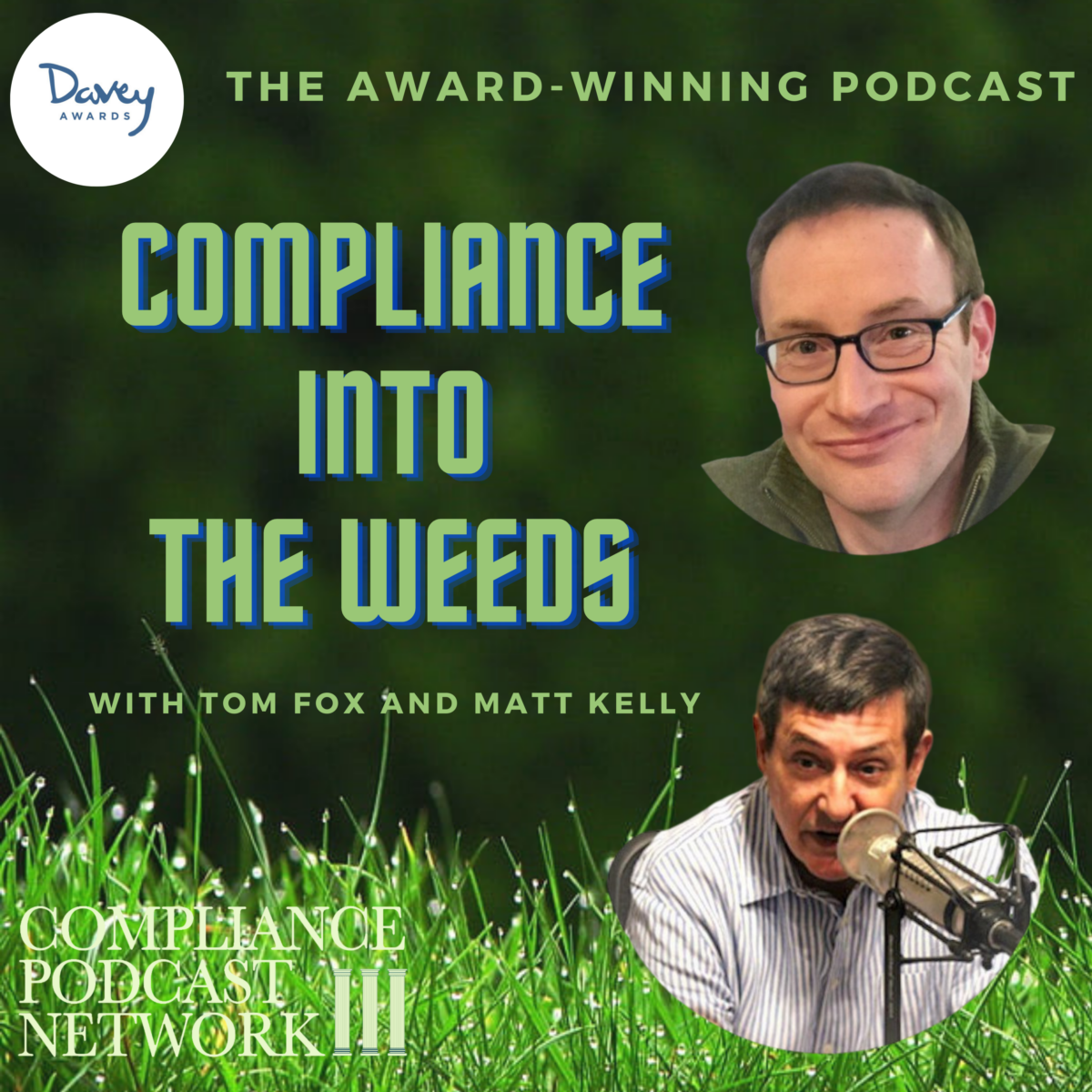This week, we will examine the macroeconomic implications of President Trump’s recent tariff hikes and suspensions, a critical issue that has been reverberating across boardrooms globally. Business leaders and compliance professionals are grappling with navigating this unprecedented landscape, and understanding the nuances of this evolving situation is crucial for corporate strategy and compliance preparedness.
Today’s Part 3 takes things in a different direction by discussing some economic data that compliance professionals should consider during these tumultuous times, which is outside data typically considered by compliance professionals. However, by reviewing it, you will be able to bring a deeper understanding of your compliance function and be able to advise your organization more holistically on risk. My discussion today is based on an article in the Harvard Business Review (HBR) entitled The Economic Data You Need to Make Decisions Through Volatility by Martha Gimbel and Ernie Tedeschi. By adapting this article for a compliance audience, I wanted to show why curiosity is perhaps the most important trait a compliance professional can hold.
Today’s compliance environment is intrinsically tied to the broader economic landscape. Regulatory changes, government policies, and market instability all have direct implications for compliance strategies. Therefore, compliance professionals must understand and leverage specific economic data sets to proactively manage risks and inform strategic decisions. Here are the crucial data compliance professionals need going forward to help navigate tariffs.
- Economic Policy Uncertainty Index (EPU Index): Compliance professionals should closely monitor the EPU Index, which provides quantifiable evidence of uncertainty within economic policies. This index is derived from analyzing the volume of news articles referencing economic uncertainty, the number of tax code provisions set to expire, and disagreement among economic forecasters. Increased volatility indicated by the EPU can signal upcoming policy shifts, requiring compliance professionals to prepare for potential regulatory and operational impacts proactively.
- Government Spending Data (Daily Treasury Statement): The Daily Treasury Statement, specifically non-interest government spending, is a real-time indicator of government fiscal activity. Observing changes in government spending patterns can help compliance professionals anticipate budgetary constraints or expansions within government-related sectors, influencing compliance obligations tied to government contracts and funding requirements.
- Individual and FICA Tax Withholding Data: Tracking the Daily Treasury Statement for withheld individual and FICA taxes offers early signals of labor market shifts. A slowdown in these withholdings might indicate impending layoffs or hiring freezes, enabling compliance professionals to adjust workforce-related compliance strategies accordingly. This foresight allows businesses to manage potential compliance risks related to labor law, benefits administration, and employment regulations.
- Weekly Unemployment Insurance Claims: Weekly unemployment insurance claims provide an immediate snapshot of labor market health. An uptick in unemployment claims often precedes economic downturns, signaling potential compliance adjustments needed around employee relations, benefits management, and redundancy procedures. Regular monitoring of this data enables compliance professionals to stay ahead of labor compliance issues, ensuring preparedness in employment law adherence.
- Private-Sector Economic Indicators: Private-sector data, including job postings, retirement account withdrawals, and credit card spending, offer rapid insights into consumer and business behavior. These indicators can be early warnings of economic stress or recovery, influencing areas such as consumer finance compliance, data privacy regulations, and general business conduct compliance. While private-sector data may lack the comprehensive reliability of government sources, it provides essential context to complement slower-moving public data sets.
Compliance Lesson 1: Embed Agility into Compliance Frameworks
One clear lesson from managing through volatile times is the importance of embedding agility into your compliance frameworks. Volatility demands that compliance processes are not just robust but also flexible. Compliance professionals must foster an organizational culture that is not merely reactive but proactive in managing regulatory risks amid economic uncertainty. This involves maintaining a continuous dialogue with business units, staying abreast of rapid economic and policy changes, and quickly adapting compliance controls and procedures accordingly.
For instance, if tariffs or government spending shifts impact supply chains or third-party relationships, compliance professionals must swiftly reassess risks and controls in these areas. Agile compliance programs will anticipate scenarios, proactively adjusting training, policies, and monitoring programs to address emerging risks effectively.
Compliance Lesson 2: Enhance Data-Driven Compliance Decision-Making
A second essential lesson is the importance of data-driven decision-making. As illustrated by the HBR article, timely and relevant data provides invaluable insights, allowing organizations to respond strategically rather than reactively to economic shifts. Compliance professionals should invest in capabilities and processes that systematically incorporate relevant economic data into compliance risk assessments and strategy formulation.
For example, regularly analyzing government spending patterns can inform a business’s compliance strategies relating to governmental contracts, while monitoring employment trends through withholding taxes can help anticipate compliance issues tied to employment law. Enhancing the compliance function’s analytical capabilities will significantly boost an organization’s resilience during uncertain times.
Compliance Lesson 3: Increase Cross-Functional Collaboration and Communication
The third vital lesson for compliance professionals is the importance of increasing cross-functional collaboration and communication across the organization. During volatile periods, compliance cannot afford to operate in isolation. Increased uncertainty requires compliance teams to integrate closely with other business functions, such as finance, human resources, procurement, and operations, to anticipate and manage potential risks effectively.
Establishing frequent communication channels and collaborative processes ensures that compliance insights inform strategic decision-making promptly. Compliance professionals should proactively engage stakeholders, highlighting potential implications of economic shifts on regulatory obligations and risk exposure and fostering a unified response across the organization.
Navigating economic volatility successfully requires compliance professionals to broaden their perspectives, leverage timely and relevant data, and adopt a more agile and collaborative approach. By carefully monitoring economic indicators, embedding flexibility within compliance frameworks, investing in data-driven decision-making capabilities, and enhancing internal collaboration, compliance teams can significantly strengthen their organization’s resilience against the backdrop of ongoing uncertainty. Compliance leaders who adapt quickly and strategically during these challenging times will position their organizations not just to survive volatility but to thrive amidst it.












